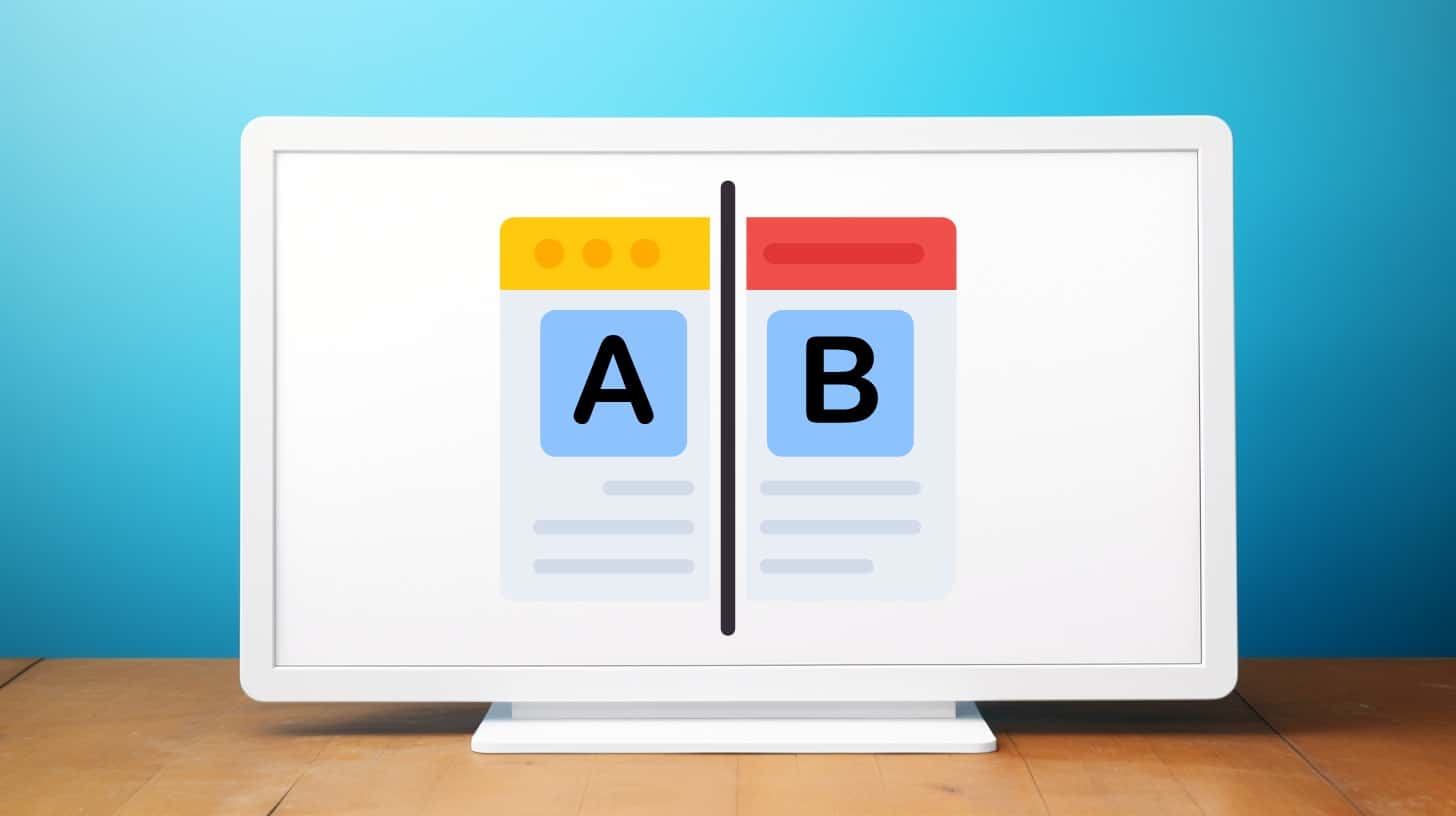So you’ve decided that it’s time for your SaaS company to look into hiring a SaaS digital marketing agency. Developing this business relationship, on which you’re willing to hang the potential success of your business, is critically important. Not only must you be clear on who the agency is and what they do best, you must be equally clear on the strengths and SaaS marketing challenges of your own company, including short-term and long-term goals.
Here are the steps to take to prepare for and select the right SaaS digital marketing agency for your SaaS business.
Get SMART First
You will never be able to judge the success of any marketing effort, whether by a SaaS digital marketing agency or by your own team, if you haven’t first set the goals your company is trying to achieve. Therefore, before you start talking to agencies, you should have your business’ overall SMART goal defined. This goal will not only inform any marketing efforts, it also will focus and align all actions taken within your business.
The following is a framework to reference while building the parameters of your SMART goal. To be the most workable and achievable, this goal must be:
Specific
The goal should be readily understandable for anyone who reads it; they should be able to see not only why it’s important, but how certain tactics might help achieve it. Just saying something like “We want to grow the business” is nowhere near enough information. How are you going to grow it? What is your desired customer mix? Being specific will help define what actions will help achieve results.
Measurable
Again, it’s much easier to determine the success of any goal if it includes at least one metric. These KPIs not only show when the goal is achieved, but help indicate progress along the way. Using the example of growing the business, what is the exact number that would indicate success? Do you want to increase new customers by a certain percentage? Lower churn by a certain amount?
Attainable
Few things in life are more frustrating than putting energy into the pursuit of an unreasonable goal. (New Year’s resolutions spring to mind.) Your business goals must be honestly and clearly achievable in order to be motivating for you and your team.
Relevant
This one seems obvious, but yet so many businesses struggle with how to define it. If your goal isn’t designed to affect real change that contributes to the long-term success of your business, and doesn’t reflect actions you can control, then it is not relevant to your business operations. An example would be the technological capabilities and bandwidth of the customers who try your product. You can design marketing campaigns to try to attract your ideal customer, but you can’t dictate what a customer’s setup is at home.
Time-sensitive
Here is your anti-procrastination element. You’ve probably noticed that tasks without deadlines often get dropped down the priority list so far that they rarely get done. So your goal needs to include a specified time frame for completion.
Now that we’re clear what we’re talking about, here are some examples of SMART goals:
- We need to deliver $1MM in incremental revenue in the next 12 months.
- We need to achieve and maintain an average conversion rate of 5% of leads from paid search in 3 months from now.
- I need to reduce my CPL (cost per lead) by 20% in the next 3 months.
In addition to your SMART goal, marketing works better when you have an idea of what your business’ big one- or two-year goal might be, such as:
- Expand into account-based marketing.
- Establish a bigger brand presence.
- Get acquired.

Taming the Iron Triangle
This is probably also a good time to consider your business’ preferences in regards to the Iron Triangle. In project management terms, this is the “triple constraint” of the interaction between project scope, time and cost, usually represented by an equilateral triangle. The definitions include:
Scope
This is the range, dimension and boundaries of any project to be completed. It includes the quantification of every aspect of all the products and services to be provided as part of a single project.
Time
As you’d expect, this is the time needed to complete the entire project as well as individual tasks within it.
Cost
Again, as you’d expect, this refers to all of the resources, financial and otherwise, that will be devoted to the project.
Here’s where the “iron” part comes in: It’s understood that, if you move one of the sides of the triangle, the corner angles will have to change to accommodate the other two sides. The point is that the three aspects of scope, time and cost are totally and irrevocably linked in any project.
Many graphic representations also put the concept of quality in the middle of the triangle – as any project’s overall quality is a result of the interplay between scope, time and cost. It’s generally recognized that, in most instances, it is simply not possible for a project to be cheap, comprehensive and quick to complete, all at the same time.
So why are we taking you on this jaunt through project management theory? To illustrate the simple reality that your business must prioritize. When it comes to the three sides of the Iron Triangle, you need to understand which aspect – scope, time or cost — is most important to your business so that you can be prepared to be flexible on the other two. Not only does this information help your business, but it should inform your conversations with prospective agencies.
Now that you’ve taken some time to define your business’ operational style and goals, consider the following areas on which you should rate any prospective SaaS marketing agency. Not only will it help you to complete full evaluations, but you will also likely find yourself prioritizing the areas in terms of which are most important to your business.
Strategy & Execution
Whether you want a SaaS digital marketing agency to take care of a tactical goal or to help you meet a big-picture goal, you have to know who the thinkers are in the agency. Is the person who is pitching you the smartest person there? Will that person work on your account? Or will you be stuck with a junior analyst who is learning the trade at your expense?
Next, it’s important to understand how the agency approaches their projects. Do they take an approach where they ideate on a strategy and then execute it? Or will they take whatever they have learned on one account and force it into your business, whether or not that approach is effective? A SaaS marketing strategy needs to be carefully crafted to fit your specific need. For example, if your company has already achieved product-market fit, then your strategy should focus on scaling and maturing marketing channels that will help you grow rapidly in your niche.
Along those same lines, it’s important to understand how the agency goes about executing on marketing initiatives. Who is the creative person? Who is the copywriter? What parts of the work does the agency outsource?
These questions around personnel will be critical to your working relationship with any SaaS digital marketing agency. Remember when you used to go apartment hunting and were shown a model apartment only to find that the apartment actually rented to you had a different layout? Ask to talk to the people who will actually work on your marketing campaigns. Make sure you get a feel for their individual areas of expertise and how familiar they are with SaaS marketing.
11 Questions That Provide More Than Answers
There are many other questions that need answers throughout the SaaS digital marketing agency selection process. Stay objective and try to get a feel for how the agency handles the following issues. These insights will provide you a much more complete picture of who the agency really is, as opposed to what they’re pitching.
1. Functional Expertise
As we’ve noted elsewhere, effective SaaS marketing does not function like traditional marketing or even digital marketing. The first sniff test is to check out the agency’s blog; you can pick up on their familiarity with SaaS based on how they talk about it. Do they talk about SaaS exclusively or do they only pay it lip service? Do they, for instance, know the customer acquisition rate for one pricing model vs. another? Do they have experience marketing SaaS companies?
2. Vertical Expertise
Your ideal SaaS digital marketing agency is one that speaks your language without you having to teach them. Look for expertise related to your own industry focus. If they don’t have it, find out if they have tackled complex verticals. Ask how long it takes their team to get familiar and comfortable with a new vertical.
3. Flexibility
Like you, marketing veterans understand that there is always an urgent request just around the corner and that “scope creep” is real. It will be essential to determine in advance how the agency works, how they bill, and whether they will be flexible enough to accommodate your requests quickly and effectively.
4. Accountability
Every once in a while, we hear horror stories from new clients where their previous agency claimed to do the work but, in reality, no work was being done. You shouldn’t need to play the parent in any working relationship and certainly not when hiring SaaS marketing professionals. As part of your early conversations, make sure to get details on what mechanisms the agency has in place to provide you with an account of work done and, just as importantly, the results of that work.
Bay Leaf, for instance, applies an internal points system to every project to help hold ourselves accountable in terms of the effort we have committed to make. As you’d guess, the points take into consideration effort, time and cost.
5. Technical Preferences
SaaS marketing agencies tend to cluster their activities around their favored tools such as HubSpot, Salesforce, Mailchimp, etc. Understand what this says about their area of expertise and how it will integrate with your own work systems. If they don’t have experience using the toolset you have, know that they will need time to learn it. There will also be necessary time spent on integrating your toolset with the ones they use in-house; don’t underestimate the delays and problems this can cause. Finally, make sure their team has the technological chops to implement the hooks that will be needed to complete this integration.
6. Analytical Ability
You know that meme, “Pics or it didn’t happen?” Good marketers feel the same way about metrics, which have become the cornerstone of all things marketing. The flashy viral social media campaign may get all the attention, but the reality of digital marketing is that it requires a significant amount of data analysis to identify problems, find actionable insights, and measure the results of actions taken.
For a SaaS business, this is even more important as you deal with CPL, MQL, ROAS metrics and more. The type of number crunching that your CFO might do is also what your SaaS digital marketing agency should be capable of doing. Ask the agency to show you examples of their work process where they uncovered a problem using analytics, fixed it, and measured the success of the fix.
7. Customer References
Even in today’s digital age, you still need to do something as old-school as to ask for (and contact!) your prospective agency’s references. They will easily provide you with one or two glowing customer references — but dig a bit deeper:
- Ask them to provide references specific to your experience or needs.
- Take a hint from a recent prospect, who asked us to connect them to a past customer. Why? Because they wanted to find out why that client is no longer with us.
- Ask for a long-term client reference, It will give you a feel for what the agency does really well that a client keeps coming back for more.
8. Size
This is another oft-overlooked area where it helps to establish a goodness of fit between your business and the agency. This relationship needs to be a match of equals. Is the prospective agency bigger than your company? Will they care about your company’s needs like you do? If you’re just going to be another number in a sea of accounts, think again. Your goal should not be to sign up with the biggest and glitziest agency; you are looking for the best fit, just like your SaaS company once was looking for the best product-market fit.
9. Go Beyond the Logo Parade
Potential clients love to see other clients that agencies have worked with; after all, they want to be in good company. If you are being shown a parade of logos, make sure to ask whether those are current clients and whether you can contact one.
Certification is a similar area to weight carefully. Agencies love to tout third-party certifications – and to be fair, prospective clients love to ask about them, as well. However, the truth about certifications is that most, if not all, of them are very easy to get! Some can be bought into, such as acquiring a listing on a directory such as clutch.io. Others, such as the Google ads certification, can be accomplished in a matter of a few hours. You just need to understand that a certification is simply a declaration that the agency is competent in a certain topic.
To confirm true expertise, however, you should ask for case studies, look at LinkedIn profiles of key personnel, and ask for examples of how certain problems were solved.
10. Honesty
During a job interview, have you ever been asked about areas in which you think you need to learn or improve? Ask the same question of the agency. What are their weaknesses? If they say none, head for the door. This is such a non-standard question that it may catch them off-guard. If they are honest wiith their answers, then you can decide how important that particular skill it for your ideal agency to have. Of course, you should always check with references about the skills you most care about in your agency.
11. Style of Work
Last, but not least, observe how exploring these issues has helped you understand the style of interaction you will get from this agency. Will it be very business-like, or will they spend time on developing their relationship with your business? Think about the last time you participated in a DiSC or Myers-Briggs evaluation. Try to categorize the people you will be working with into those buckets and ask yourself what will you need to do to make the best of the relationship.
Agency work processes might also display varying degrees of organization, which can be informative. At Bay Leaf, we tend to break our clients’ projects down into weekly, monthly and quarterly goals, which are agreed upon in advance.
Opening the Relationship
This seems like a good place to provide the reminder that, once the paperwork is signed, your role as marketing client is not just to sit back and wait for the great results to roll in. Plan to participate fully in developing the relationship through actions such as:
- Completing the client onboarding process, which will ensure your agency gains access to both content experts and to crucial information about your business.
- Working with the agency to set clear, measurable goals for your work together.
- Being honest in your feedback on deliverables – and if you ask for updates, allow reasonable time for the effort to be refined.
- Escalating the conversation beyond your account manager if any situation is making you feel uncomfortable. Agency leadership will appreciate the information and the opportunity to get things back on track.
Choosing a Valued SaaS Digital Marketing Agency Partner
Choosing the right SaaS digital marketing agency requires focus and energy – but the results can be well worth it. If you take the time to prioritize the above points and actually develop a rating system for prospective agencies, congratulations! You will likely find an agency that provides a strong fit for your business. The optimum goal is to find an agency that you can envision as a valued partner for years to come.
If you’ve found this article informative, you may want to download Bay Leaf Digital’s SaaS Agency Selection checklist to help you get started on selecting your SaaS digital marketing agency; it contains all the points mentioned here.
In addition, you can always contact us directly for more information about our marketing services.



